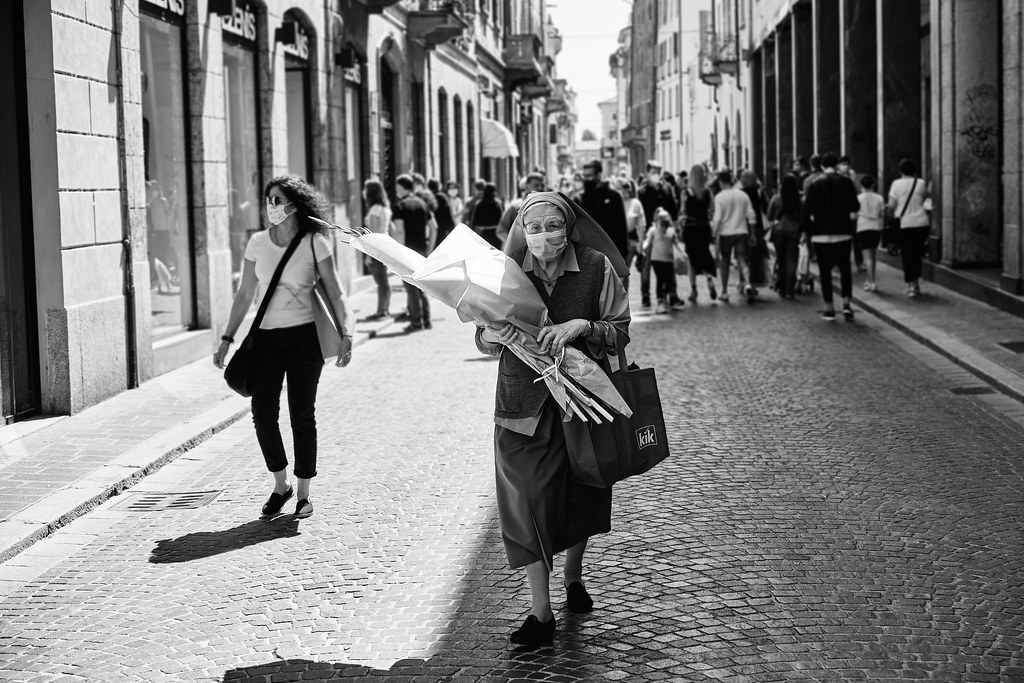One of the more troubling trends during the Covid-19 pandemic is the refusal to wear a mask by segments of the U.S. population. The reason to wear a mask while in a building or in large groups is simple; When everyone (or a majority) of people are masked, the spread of the disease will be minimized by limiting how much of the disease makes it into the air. And researchers are investigating the possibility that exposure to less of the virus means either not catching Covid-19 or only having very minor symptoms.

The reasons people don’t want to wear masks are varied and in some cases ridiculous. One of the crazier claims is that wearing a mask will make the wearer inhale too much CO2. Unless you have an underlying medical condition or difficulty breathing to begin with, this claim is simply false. From Dr. Bill Carroll PhD at the University of Indiana:
“It has to be a pretty high concentration to be capable of causing harm. CO2 is present in the atmosphere at a level of about 0.04%. It is dangerous in an atmosphere when it is greater than about 10%.”
Funnily enough, you can also be harmed by a lack of CO2 as well. From the same article, if you held your breath too much:
“If you hold your breath, you wind up with too much CO2. The core issue is that CO2 regulates the pH of the blood—too much CO2 and the blood becomes too acidic; too little and it becomes too basic (alkaline). In either case, your body detects the change in acidity and you pass out, which is the body’s way of saying, ‘please stop fooling with me and breathe normally.’”
So, if you insist on not wearing a mask because you think you’ll breathe in too much CO2, please also don’t hold your breath either.
And most places asking (or telling) you to wear a mask are making it clear that children are not required to wear one nor are people with breathing problems. In fact, in the requirements I’ve seen, places are explicitly stating that those groups shouldn’t wear a mask.
The other strange, but less surprising, reason that people are refusing to wear a mask is the “personal freedom” argument. This is the notion that wearing a mask violates some kind of personal freedom you have. I feel that this argument holds little water simply because in this case a personal freedom puts others at risk. The wearing of a mask isn’t just to protect you the wearer, it’s to also protect the others around you and with large segments of the population wearing such a mask, the risk goes down, even for those who can’t wear one. So, by arguing that your personal freedom is being violated you are essentially saying you don’t care what happens to anyone around you (or yourself).
Is it fun wearing a mask? No, not really. But my personal, temporary discomfort is a small price to pay to help fight the fight against Covid-19 and help make the reopening process less dangerous.
I am fascinated that this is such a controversial issue in the United States. In East Asia wearing a mask is commonplace when there are public health risks and in Japan, this practice stretches back to the 1918 Flu pandemic. This Time article gives some insight into why here in the States it’s such a big deal:
The difference in perception of the mask comes down, in part, to cultural norms about covering your face, he says. “In social interactions in the West, you need to show your identity and make eye contact. Facial expression is very important.”
I say, social norms be damned. A few paragraphs later in the story, there is the sentiment in Hong Kong:
“Wearing a face mask is just common sense. It creates a barrier, so nothing can touch your nose and mouth. Why wouldn’t I wear a face mask?” Says Ho.
So, there are very few negative aspects of wearing a mask and while it’s effectiveness will likely never be completely understood, there is some evidence that it helps, so why not wear one?
Lastly, airlines are now enforcing their face mask requirements more stringently and in some cases saying that passengers could be banned from flying the carrier if they refuse to wear one. I’m nearly 100% positive someone out there will challenge this in court and such a move goes back to my above point, personal comfort should not trump public safety in the time of a pandemic. But again, I am sure someone will try to make the argument that they shouldn’t have to wear a mask.
In any case, unless you are someone who can’t wear mask due to health reasons, please, please, please, put the mask on when you go into a business or are around a lot of people. Please.
